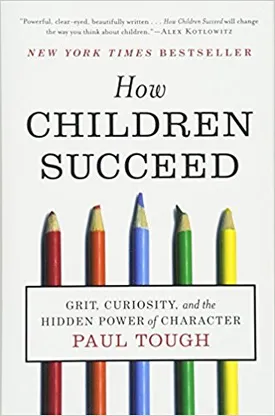How Children Succeed: Grit, Curiosity, and the Hidden Power of Character by Paul Tough
Paul Tough’s “How Children Succeed” refutes traditional ideas of success, claiming that intelligence and test scores are no longer the best indicators of success. He argues that the “hidden power of character” -- grit, self-control, curiosity, optimism, and communication skills—are what will give kids the tools they need to succeed.
In “How Children Succeed,” Tough introduces the concept of non-cognitive skills, which he considers more predictive of success than IQ or SAT scores. He argues that the adversity kids face during their childhood makes a much bigger difference than test scores, so it’s important to focus on building their character, resilience, and motivation.
He begins by talking about how the traditional notion of intelligence fails to explain why some people excel in certain environments, but fail to thrive in others. He points to case studies of kids from all walks of life—from child prodigies to kids from far more difficult family backgrounds—to demonstrate that non-cognitive skills are just as important as IQ.
The next section examines how non-cognitive skills can be developed in children, whether through structured activities or unstructured playtime. He shares the results of his research, showing how everyday activities like sports, outdoor activities, after-school programs and even reading can increase a child’s game-changing assets like grit, self-regulation, curiosity, and the ability to communicate effectively.
The book then dives into the neuroscience behind non-cognitive skills, explaining how they can change the structure of the brain and can even be passed down through generations. He points to studies that show how a sticky combination of genetics and environment can shape “character” development.
Finally, Tough looks at ways to measure non-cognitive skills — including student surveys, guidance counselors, parent interviews, and observations by teachers. He also discusses ways educators can help cultivate the traits that lead to greater success and well-being.
Conclusion
Overall, “How Children Succeed” is a compelling and persuasive look at how non-cognitive skills—grit, self-control, curiosity, optimism, and communication—are the best predictor of success in life. It’s an invaluable resource for educators, parents, and anyone who wants to understand how to help kids excel.

